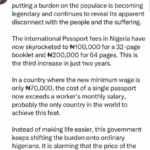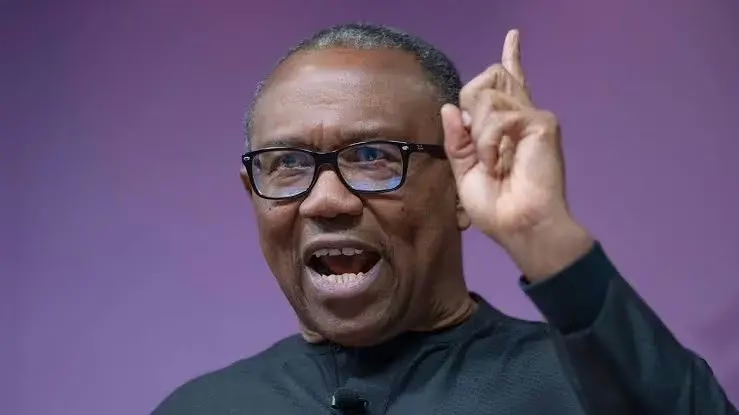Peter Obi Criticizes Federal Government Over Steep Hike in Nigerian Passport Fees
Peter Obi, the Labour Party’s former presidential candidate in the 2023 general elections, has strongly condemned the recent decision by the Federal Government to raise Nigerian passport fees. He described the move as an additional strain on citizens already grappling with economic difficulties.
Details of the New Passport Fee Structure
On Thursday, the Nigeria Immigration Service (NIS) announced revised charges for Nigerian passports, effective from September 1, 2025. The updated fees set the cost of a 32-page passport, valid for five years, at ₦100,000, while a 64-page passport with a ten-year validity will now cost ₦200,000. These rates apply exclusively to applications submitted within Nigeria. For Nigerians residing abroad, the fees remain unchanged at $150 for the 32-page and $230 for the 64-page passports.
Obi’s Response: A Disconnect from Economic Realities
Reacting to the announcement on his X (formerly Twitter) account, Obi criticized the government’s insensitivity amid the nation’s ongoing economic challenges. He highlighted that the new passport fees surpass the current national minimum wage of ₦70,000, recently approved by President Bola Tinubu’s administration.
Obi stated, “This administration’s relentless imposition of financial burdens on ordinary Nigerians is becoming a defining characteristic, exposing a worrying gap between the government and the people’s hardships.”
Comparing Passport Costs to Workers’ Earnings
He further emphasized the disproportionate nature of the fee increase, noting, “The cost of a Nigerian international passport has now escalated to ₦100,000 for a 32-page booklet and ₦200,000 for 64 pages, marking the third hike within just two years. In a country where the minimum wage stands at ₦70,000, the price of a single passport exceeds what many workers earn in an entire month. This is a rare, if not unique, situation globally.”
Obi lamented that instead of alleviating citizens’ burdens, the government continues to transfer more financial pressure onto the populace, calling the situation “alarming.”
Context and Broader Implications
This increase comes at a time when inflation in Nigeria remains high, with the National Bureau of Statistics reporting a year-on-year inflation rate of 22.3% as of May 2024. Many Nigerians are struggling with rising living costs, making the passport fee hike particularly burdensome for low- and middle-income earners.
For comparison, neighboring Ghana charges approximately GHS 150 (around ₦12,000) for a similar passport, highlighting the relative steepness of Nigeria’s new fees. This disparity raises concerns about accessibility and the potential impact on Nigerians’ ability to travel for work, education, or family reasons.
As the government moves forward with these changes, public discourse continues to focus on balancing revenue generation with citizens’ welfare, especially in a challenging economic environment.


















0 Comments